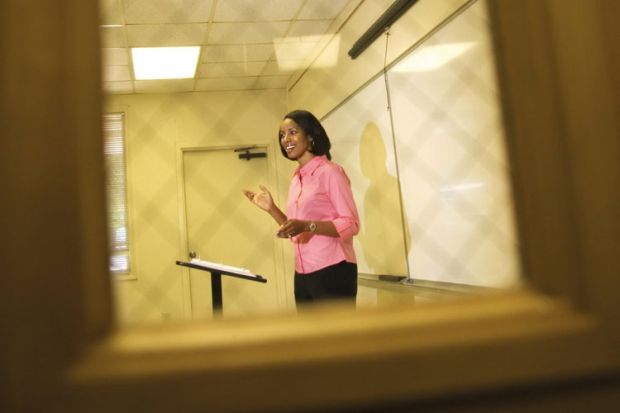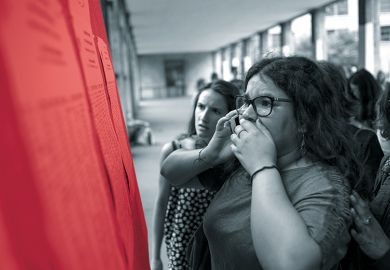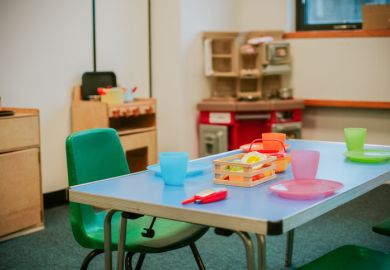Source: Getty
This is how we do it: schools risk embedding ‘institutional conservatism’
There must be no place for a “them and us” mentality in initial teacher training if the sector continues to move towards a school-led system of provision, a conference has heard.
James Noble-Rogers, executive director of the Universities’ Council for the Education of Teachers (Ucet), said that universities and schools should develop “genuine and cohesive partnerships” and avoid a “crude purchaser/provider model” whereby schools “buy in training from where they see fit”.
His comments come against the backdrop of the rapid rise of the government’s School Direct policy, under which trainees are recruited directly by schools rather than first completing a course of higher study.
The resulting loss of postgraduate teacher training places allocated to universities has left some institutions with huge losses of funding and led some to abandon postgraduate certificates of education altogether. Both the University of Bath and The Open University decided last year to end their PGCE courses.
Speaking at a Westminster Education Forum on 1 April, Mr Noble-Rogers sought to define universities’ role in the new landscape as key partners although he accepted that schools might have a “significant or majority voice” in how teacher training is provided.
“This partnership collectively decides on the allocation of resources and who does what in response to local needs. Decisions would be taken collectively. There would be no place for a ‘them and us’ mentality,” he said.
Mr Noble-Rogers insisted that university programmes with PGCEs “are continuing to prove popular among both schools and trainees themselves, who recognise the added values [they] can bring”.
“[Universities] provide a sense of perspective and a guard against parochialism and possible institutional conservatism at school level,” he said.
“[For schools], growing one’s own teachers is an attractive concept. But it carries with it potential risks: training for the here and now rather than the wider system and the future; institutional conservatism; lack of consistency across the country.”
He also warned that “too big and too quick an expansion of School Direct” could lead to universities “self-selecting to withdraw from teacher education and devote their resources and attention to more profitable and more stable areas of work”.
“That would be damaging for the quality of new teachers in the country and, potentially, for teacher supply at a regional and national level,” he added.
He stressed that unless the government is careful, its reforms would lead to a “fragmented” system and the “loss of good provision”.
Charlie Taylor, chief executive of the National College for Teaching and Leadership, acknowledged that the changes had created “instability” for universities. And although he admitted that the market element of the new system meant that there would be “winners and losers”, he told the conference that universities would play a crucial part in other areas including continuing professional development and research.
But Patrick Roach, deputy general secretary of the NASUWT teachers’ union, said that there should be “no presumption” against undergraduate or postgraduate higher education routes into teaching.
“That should be made loud and clear in terms of policy directions and strategy, but also in terms of the funding mechanisms,” he said.
Register to continue
Why register?
- Registration is free and only takes a moment
- Once registered, you can read 3 articles a month
- Sign up for our newsletter
Subscribe
Or subscribe for unlimited access to:
- Unlimited access to news, views, insights & reviews
- Digital editions
- Digital access to THE’s university and college rankings analysis
Already registered or a current subscriber? Login





